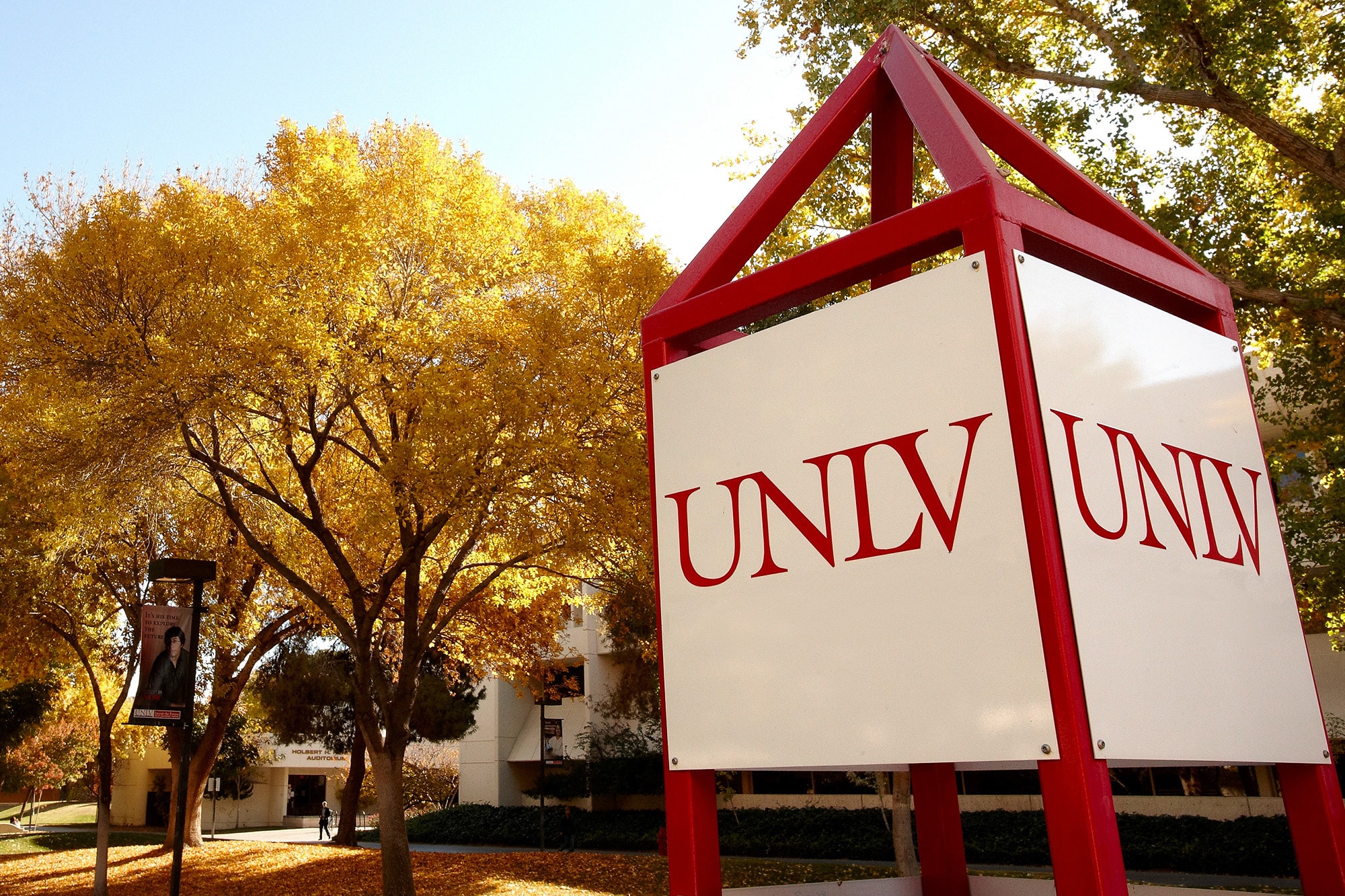What
Students from the UNLV Howard R. Hughes College of Engineering will put their undergraduate education to the test when they showcase year-long, commercially viable projects designed to solve everyday challenges at the fall 2011 Senior Design Competition.
When
Wednesday, Dec. 7, from 8:30 a.m. - 2 p.m.
All projects will be on display for the duration of the event, with a scheduled break from noon to 1 p.m.
Where
Great Hall of Thomas Beam Engineering Building, UNLV
Details
This semester students accomplished a variety of technologically innovative projects such as a potable water system for a remote community in Nicaragua, a solution that could alleviate the stench from the sewer system on Las Vegas Boulevard and a pedestrian bridge that could boost safety near the Fremont Street Experience.
The Senior Design Competition is the culminating project for undergraduate engineering students at UNLV. The event is judged by local industry representatives and displays novel projects developed by senior students in the electrical, mechanical and civil engineering departments. With thousands of dollars in prize money on the line, the competition also introduces students to the spirit of entrepreneurship and the benefits of commercial application.
Next semester, engineering students will partner with business students to design a business plan helping them market and sell their ideas.
Note
A partial list of projects is outlined below. A complete list of all 15 projects will soon be available online at http://engineering.unlv.edu/.
Selected Projects on Display
Fremont Street Experience
Pedestrians must cross a dangerous, traffic-heavy intersection to access the Fremont Street Experience from the east side of North Fourth Street. At night and during rush hour, the current crosswalk and other traffic signals in place are not equipped to handle the large volume of vehicles and pedestrians. This group determined that a pedestrian bridge should be constructed to improve on safety, convenience and the overall effect on businesses.
360 Degrees Dressing Room
The modern day dressing room could be revolutionized through this invention of a two-way mirror system with recording capabilities. When a customer tries on a garment in this technologically advanced dressing room, mirrors allow the customer to see how they look from any angle. Using a record and play-back system the customer can also watch themselves in the garments and in motion.
Nicaragua Needs Agua
In partnership with Engineers Without Borders, this student team designed a dependable potable water supply system for the community of El Robledal, Nicaragua. In El Robledal water has become scare because of deforestation, watershed degradation and an increased population. The group designed a pipeline that spans from a natural spring about eight kilometers away from the community. This is a great template for other communities that may suffer from a similar potable water deficiency.
Automated Solar Panel Dust Remover
Solar panels harness a great amount of solar energy, especially in climates such as Las Vegas where the sunlight is abundant and water is scarce. In these dry climates, sun panels accumulate dust particles over time, which compromises the power efficiency of the solar power system. Water is typically used to clean the dust off the panels, an inefficient use of precious resources in dry climates. This team designed a system that will blow air over the solar panel to knock the dust particles away so that water won't be needed.
Las Vegas Strip Odor Remediation
Unpleasant odors escape from the sewer system in the heart of downtown Las Vegas, most notably at the intersection of Las Vegas Boulevard and Flamingo Road. The fumes are a byproduct of the biological processes that occur in wastewater as it flows through the system en route to the wastewater treatment plant. This group developed several alternatives for dealing with this issue included activated carbon filtration, biofiltration, and adding nitrate.
Radio Control Glove
The Radio Control glove will allow a user to control a remote control car through simple hand gestures. The glove and the car use blue tooth technology to talk to one another, bringing a new dynamic to the radio control market. By using Blue Tooth technology, they can take advantage of future adaptations such as creating an application that would allow you to control the car with your smart phone.
High Altitude Wind Turbine
The high altitude wind turbine that can be deployed quickly to create a renewable source of energy in remote areas such as in military exercises or disaster relief efforts. When deployed, the turbine, using helium, climbs to an altitude of 1,500 feet so that it can tap into the constant airflow stream. At this altitude the air is moving at an exponentially higher velocity than on the ground because of the lack of buildings, trees and terrain, which slow down the air flow. So, the turbine is able to generate much more power than its land-based counterpart.
The Water Box - Atmospheric Water Generator
With the United Nations announcing a worldwide water shortage, the need for alterative water sources has never been greater. This group developed a method for extracting water from the air, particularly in arid climates where water is scarce. At the push of a button the water box turns air from dry climates into moist air and then condenses that air into drinking water.



